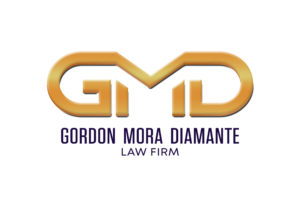However, when problems arise between the stakeholders of the corporation, harmony
is disrupted and can be indicative of deeper rooted problems in the business itself.
The Disputes themselves
Typically, these problems arise from a wide variety of issues. It may stem from a
question of policy, in that the people involved in making the decisions for the
business have differing opinions as to how to go about the day-to-day operations,
which may or may not come from those holding a minority share in the corporation.
It may come from questions as to the timing & amount of profits or dividends to be
paid to shareholders, or issues on executive compensations. It can even stem from
other professional and personal relationships with other corporations, be it
competitors, suppliers, or partners in business. In rare instances, these problems
manifest themselves during hostile takeover attempts, mergers & acquisitions, or
when control over the company becomes the sole issue at hand.
The Effect on Businesses
How do these issues affect the business? Simply put, this can range from feelings of
harassment and disharmony among the employee to instances of violence and utter
confusion as to how to go about the business itself. This results in stoppages of work
or even litigation, which will cost the company and its owners both time and money.
What does the law say?
Let us go over the legal intricacies of this complicated issue. Recall that a corporation
itself, once registered with the Securities and Exchange Commission (SEC), is
granted by law a personality of its own. This simply means that the corporation, in
the eyes of the law, is considered as a ‘person’ for all intents and purposes. Among
others, it can enter into contracts, sue, and can be sued.
Now say a shareholder wants to file an action to protect his own interest, or the
corporation’s interest. What can he file? The law talks about individual suits,
representative suits, and derivative suits.
Let’s discuss Individual Suits first. In the case of Guy v. Guy (GR Nos. 189486 and
182008; December 4, 2009), the individual suit may be instituted by a stockholder
against another stockholder for wrongs committed by him/her personally, and to
determine their individual rights. An individual suit may also be instituted against a
corporation, for the enforcement of his own rights. Notably, individual suits are filed
when the cause of action belongs to the individual him/herself personally. This can
range from mere collection suits, enforcement of obligations, or even criminal actions
in the appropriate case.
For Representative Suits, these are instituted by the stockholder, in behalf of himself
and all other similarly situated stockholders, when a wrong is committed against a
group of stockholders (Cua, Jr. v. Tan, GR 181455-56, December 4, 2009). Simply
put, one of the stockholders holds himself out as representing a bigger group of
stockholders, to seek redress or enforcement of right.
The most important action is a derivative action. Normally, corporate action is
exercised exclusively by its board of directors or BOD. When the corporation’s BOD
fails to protect the rights of the stockholders, fail to vindicate these rights, or are
guilty of breaching the trust of the stockholders, these offended stockholders can file
a derivative action to enforce a corporate action against the board.
Derivative suits are important because they are an exception to the rule that the
corporation only acts through its BOD. Derivative actions allow the stockholders, who
are not part of the BOD, to act for the benefit of the corporation. Given this
extraordinary circumstance, the law requires the following to be present for this case
to prosper:
The stockholder at the time the acts or transactions subject to the action
occurred and at the time it was filed;
● He exerted all reasonable efforts, and states the same with particularity in the
complaint, to exhaust all remedies available under the articles of
incorporation, bylaws, laws, or rules governing the corporation or partnership
to obtain the relief he desires;
● There were no appraisal rights are available;
● The suit is not a nuisance or harassment suit; and
● The action must be brought in the name of the corporation.
How to resolve these problems?
Let’s view these possible issues in the context of the Philippines, with the end goal of
resolving them. When resolving these issues, the Revised Corporation Code of the
Philippines (RA 11232), along with the decisions of the Supreme Court and rulings of
SEC form part of the integral legal foundation to find appropriate solutions.
It is our humble view though that resorting to litigation and judicial remedies should
be done as a last resort, as internal dispute resolution and arbitration are viable
alternatives to the strenuous and taxing demands of our judicial system. Here, we
have to heavily rely on the corporation’s professional culture & corporate governance
policies. These act as a company’s ‘pillars’ of growth and development. For
appropriate issues such as simple disputes or misunderstandings, mediation and
arbitration are very powerful tools to find solutions. Even internal committees on
decorum, investigation, and audit play key roles in finding solutions.
We would even go so far as to say that having these guiding principles on the
business’ culture, integrity, and discipline can even prevent these kinds of disputes.
Strengthening corporate governance, implementing robust governance policies,
ensuring transparency and accountability, as well as great emphasis on effective
communication by encouraging open communication among shareholders, directors,
and management are simple but effective pillars of corporate culture to ensure that
problems like these don’t happen. And if they do, they can be solved swiftly and
effectively.
Conclusion
If you have any queries on intra-corporate disputes, corporation law in general, or
any similar issue on the matter, feel free to reach out to us at GMD Law.
About the Writer:

Atty. H. A. Bon Magdalera is a lawyer focusing on franchising and corporate expansion. With a sharp understanding of business law and a knack for identifying growth opportunities, he help clients establish and grow their ventures while ensuring compliance with legal regulations.
About GMD Law:

GORDON MORA DIAMANTE is a multi-disciplinary firm rendering end-to-end
business support, enabling services and intervention processes by engaging clients
from conception, birth to growth and innovating, restructuring as well as giving birth
to new but evolving business ideas, all revolving around the business life cycle.
Email Us: info@gmdlaw.ph
Find Us: C213, 88th Avenue, Gov. M. Cuenco Ave, Cebu City
Call Us: TELEPHONE NO: (032) 318-0538
//HABLM 202



